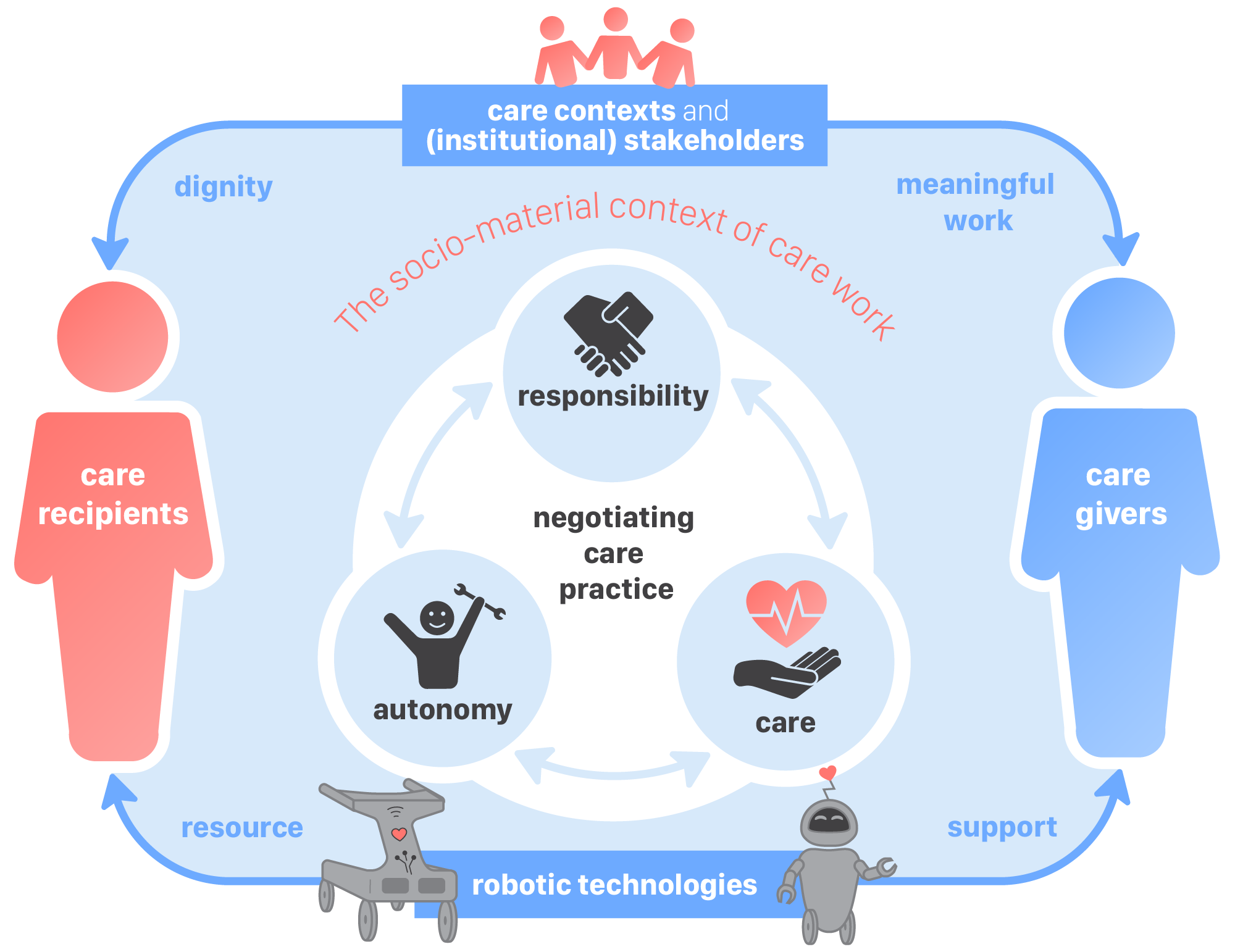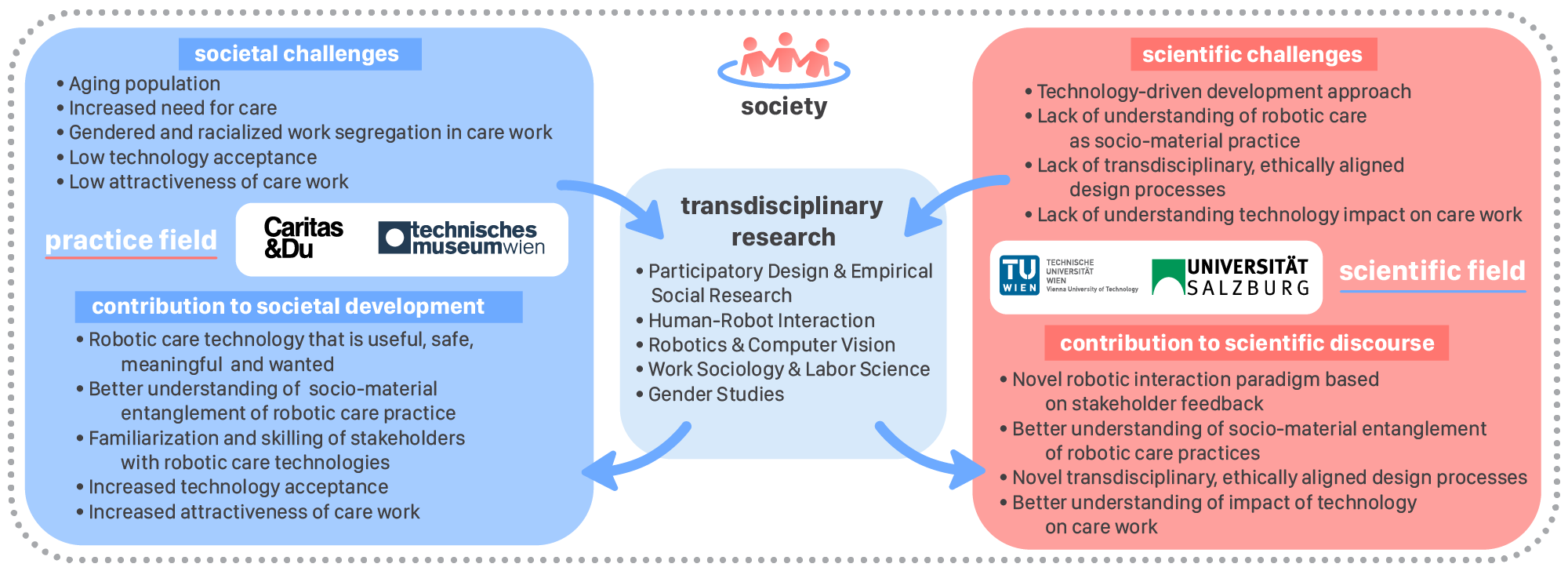About
Caring Robots // Robotic Care
Our aim is to re-imagine robotic technology in care by developing technology that is useful, safe, meaningful, and wanted, through a design process that involves caregivers, people in care, care organizations, and other stakeholders. The project Caring Robots // Robotic Care is a transdisciplinary research collaboration by TU Wien, IT:U Interdisciplinary Transformation University Austria, Caritas Wien, and Technisches Museum Wien.
The development of robots for use in care is a much-discussed scenario that is strongly polarized. On the one hand, there is the hope that (robotic) technology will help us meet the challenges of demographic change, support caregivers, and help people lead self-determined lives. On the other hand, there are fears that robots will replace human care and push people in need of care into social marginalization. The goal of this project is to explore possible and desirable roles of robots or similar technologies in the complex context of care. We aim to bring a wide range of actors - caregivers, clients, interest groups, users, and political decision-makers - together with experts from robotics, computer science, and sociology, to collectively ask the question how technology can and should (or should not) change the future of care.
We start from the question
»what robotic technology in care should do instead of what it could do.«
Instead of starting from a specific technology, we aim for a participatory, open and reflective design process that involves a broad range of stakeholders from the care sector. The ultimate goal is to create desirable technological futures of care, rather than merely acceptable ones. Much research has focused on developing assistive technology in a task-solving, feature-driven mindset. In contrast, this project starts from the question what robotic technology in care should do compared to what it could do. This will contribute to a novel ethically aligned design approach for robotic care technology.

We recognize that care work takes place in a socio-material context. Within a relationship of interdependence and vulnerability, caregivers and recipients jointly negotiate their roles, autonomy, care, and responsibilities in a specific care practice. Therefore, we involve stakeholders in a series of design case studies in different care environments, from institutionalized and semi-institutionalized care to mobile care and 24h care at home. Each case explores specific care challenges such as cognitive decline and social isolation. What are the technological opportunity spaces for providing support and what are associated issues regarding labor, privacy, and ethics?
The research team has profound knowledge in inter- and transdisciplinary research. Four scientific team members - Sabine Köszegi, Margrit Gelautz, Astrid Weiss, and Markus Vincze - collaborated for the interdisciplinary doctoral college TrustRobots at TU Wien. Christopher Frauenberger from the University of Salzburg joins the consortium as an expert on participatory design and digital humanism. Doris Kaiser from Caritas der Erzdiözese Wien and Jürgen Öhlinger from Technisches Museum Wien, two core project members from the practice field, will drive the cross-fertilization between science and practice with their in-depth expertise on care and science communication. To analyze the potential of robotic technology in care, involved PhD students have backgrounds in different academic disciplines, including sociology, psychology, Human-Computer Interaction, Human-Robot Interaction, computer vision, and new media, as well as electrical and mechanical engineering.
